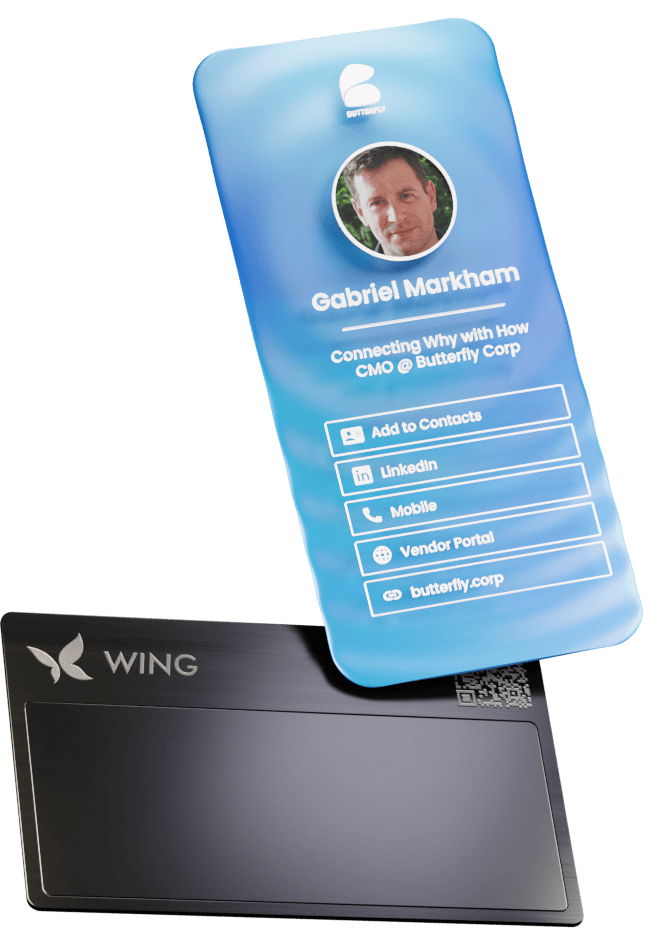In an increasingly digital and interconnected world, traditional paper business cards are undergoing a significant transformation. The rise of smart business cards, powered by cutting-edge technology, is revolutionising how professionals connect and exchange information. With their ability to seamlessly bridge the physical and digital realms, smart business cards offer a myriad of benefits that enhance networking experiences and streamline information sharing. In this article, we delve into the concept of smart business cards, exploring their features, advantages, and potential impact on the future of professional networking.
The Emergence of Smart Business Cards
Smart business cards, also known as digital business cards or e-business cards, represent an evolution from the traditional paper-based format. These innovative cards leverage technologies such as Near Field Communication (NFC), QR codes, or mobile applications to digitise and enhance the networking experience.
Features and Benefits
Enhanced Contact Information: Smart business cards enable professionals to include more than just their name, phone number, and email address. They can integrate dynamic features like social media profiles, portfolio links, and even personalised video introductions. This comprehensive approach offers recipients a holistic view of a person's professional persona, facilitating deeper connections and engagement.
Instant Information Exchange: With traditional business cards, manually entering contact details into a digital address book can be time-consuming and prone to errors. Smart business cards simplify this process by allowing recipients to instantly access and import contact information into their smartphones or other digital devices with a simple tap or scan. This streamlined information exchange ensures accuracy and saves time for both parties involved.
Customisation and Flexibility: Unlike their paper counterparts, smart business cards provide a higher degree of customisation. Users can easily update their details, add new links or content, and adapt their digital card to reflect changes in their professional journey. This flexibility ensures that recipients always have up-to-date information and allows professionals to make a lasting impression with a personalised touch.
Analytics and Insights: Smart business card platforms often provide analytics and insights, offering professionals valuable data on how recipients engage with their digital cards. This data can include metrics such as views, clicks, and geographic information, enabling users to track the effectiveness of their networking efforts and make data-driven decisions.
The Future of Networking
As the adoption of smart business cards continues to grow, their impact on professional networking is poised to be transformative. Here are some potential future developments and trends:
Integration with Contact Management Systems: Smart business cards can seamlessly integrate with contact management systems, allowing for real-time synchronisation and updates. This integration eliminates the need for manual data entry, making it easier for professionals to maintain and manage their contacts efficiently.
Blockchain and Security: Blockchain technology could be leveraged to enhance the security and authenticity of smart business cards. By storing card information on a decentralised and immutable ledger, professionals can have greater confidence in the integrity and privacy of their digital cards.
Augmented Reality Experiences: Smart business cards could be combined with augmented reality (AR) technology to create immersive networking experiences. By scanning a card, recipients could access interactive content, view 3D presentations, or engage in virtual meetings, fostering more engaging and memorable connections.
Conclusion
The traditional paper business card has long been an essential networking tool. However, as the world becomes increasingly digitised, the emergence of smart business cards offers an exciting evolution in the way professionals connect and exchange information. With their enhanced features, instant information exchange, and customisation options, smart business cards have the potential to revolutionise networking experiences. As technology continues to advance, we can anticipate even more exciting developments in the realm of smart business cards, shaping the future of professional networking in remarkable ways.
Check out our main site to get your smart business card today!
https://www.wingcard.io/



